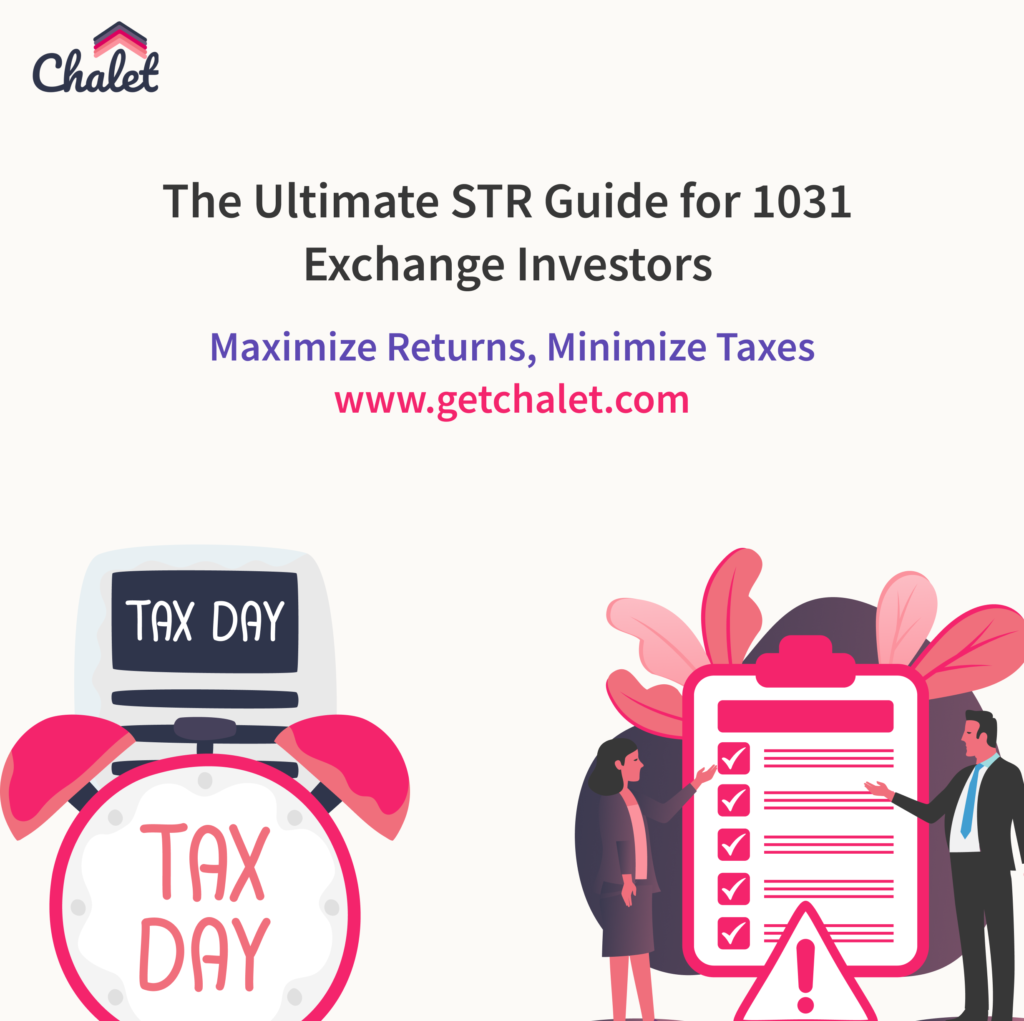When you swap one property with another through 1031 exchange there are great tax benefits. 1031 Exchanges are possible with Airbnb Rentals (STR) but there are things you need to watch out for. There is a reason that this term is very popular amongst investment pros. Very often when working with our investors, we get asked about 1031 exchanges so we felt it was a good idea to provide a summary of this IRS rule. Before we get into what is often overlooked, let’s start with what 1031 exchange is.
What Is 1031 Exchange?
1031 Exchange gets its name from Section 1031 of the Internal Revenue Service Code. You may also hear pros use terminology such as: “Let’s 1031 that house for another”. Most of the time when you sell a real estate property you need to pay the capital gains tax. 1031 Exchange allows you to swap properties without cashing out or recognizing a capital gain.
Important Dates
There are two important time-based limits you must be aware of if you decide to swap your properties through the 1031 exchange.
45-day rule
This deadline relates to the designation of the replacement property. Once you sell your property, the intermediary will hold the cash. Please note that you will not receive the cash upon completing the sale. Within this 45 days of the sale of your property, you must designate replacement property in writing to the intermediary. You usually specify the property in writing to the intermediary.
180-day Rule
You must close on your new property within 180 days of the sale of the old property. This gives you roughly 6 months to find and close on the replacement property.
There are three other things often missed or misinterpreted that you must be aware of when dealing on 1031 Exchange.
Free Whitepaper
The Ultimate STR Guide for 1031 Exchange Investors
Download our comprehensive guide to learn:
- Key strategies for identifying high-performing STR properties
- How to maximize tax benefits through 1031 exchanges
- Market analysis techniques for STR investments
- Common pitfalls to avoid in STR investing
- Expert tips for managing your STR portfolio

1. 1031 Exchange and Vacation (STR) Rentals
There are special rules for vacation homes that you must abide by. Per the IRS, offering the vacation property for rent without having tenants would disqualify the property from being eligible for a 1031 exchange. What this means is that if you own a vacation home and you use it strictly for personal use, you will not qualify for either capital gains deferral or deprecation recapture avoidance by leveraging the 1031 Exchange.
This article outlines when vacation properties and second homes qualify for 1031 Exchange.
- The dwelling unit must be owned for 24 months
- Property has to be rented for at least 14 days at fair market value
- Personal use of the property cannot exceed more than 14 days or 10% of the days that the property was rented.
2. Depreciation
This is a major benefit of the 1031 exchange that is often overlooked. For Airbnb Hosts who own their homes, depreciation of your property can be an advantageous tax deduction. Traditionally speaking, if you sell your property at a profit, it can trigger a gain known as a depreciation recapture which is taxed as ordinary income. With the 1031 exchange, you can avoid this recapture pretty much indefinitely as long as you keep swapping out properties through the 1031 exchange.
Learn more about tax depreciation and cost segregation here.
3. Estate Planning
Another major benefit that is often overlooked. A 1031 Exchange is not only great for investment purposes but can potentially be a useful tool for estate planning. Your personal tax liabilities end with death, so if you hold the property until death, your heirs won’t be expected to pay the tax you postponed paying. Here’s another great article outlining the benefits.
Please note that real property held as your primary residence generally will not qualify for a 1031 exchange.
What types of properties can be targeted for a 1031 exchange? To find out, click here.
GetChalet Inc. does not provide tax advice and therefore cannot advise investors on the applicability of tax law. If you are considering a 1031 exchange, you should consult with your tax advisor.


